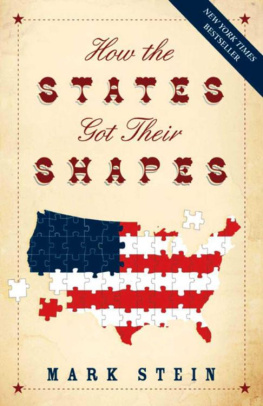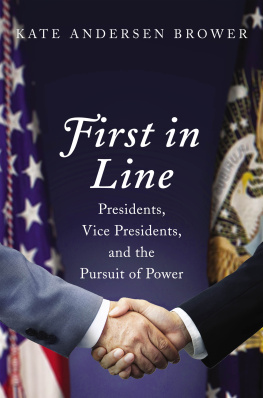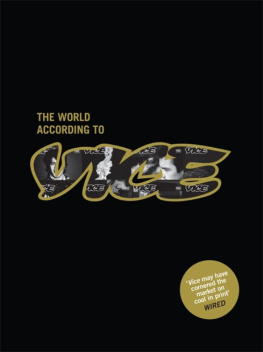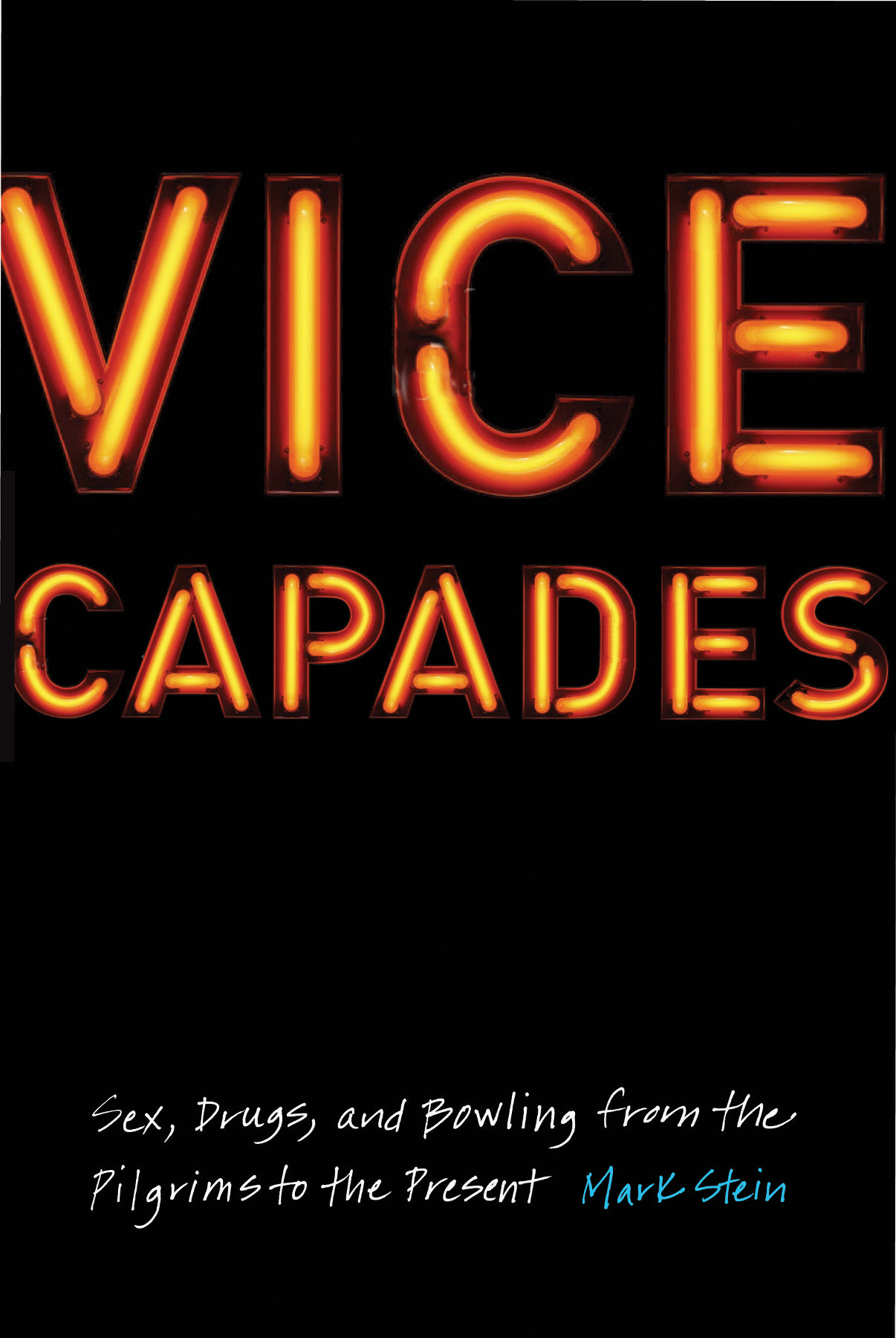For providing information and insights into aspects of vice, I am indebted to and wish to thank Daniel Aherne; Elence Atasever-Arda, MD ; Debra Bruno; Christopher Ehrman; Marian Fox; Daniel L. Goldberg; Tom Jabine; Nancy Lisagore; Prof. Marianne Noble; Roberta Redfern; Amy Ujiji Swift; and Debby Vivari.
Any viewpoint or image in this book does not necessarily reflect the views of the Department of Health and Human Services ( HHS ) and/or the Centers for Disease Control ( CDC ), nor imply an endorsement by HHS and/or the CDC of any particular organization or product. If that sounds like Im reciting something I was told to say, its because I ambut am happily doing so, as data and publications provided to the public by the CDC were of invaluable help in writing this book.
I particularly want to thank my editor, Tom Swanson (assisted by Emily Wendell); my wonderfully sharp-eyed copyeditor Mary M. Hill; and the entire team at the University of Nebraska Press for all their work and for, each of them, truly being a joy to work with.
In the category of Above and Beyond, my agent, Alec Shane, performed exceptional obstetrical service in bringing this book into the world. Emerging from his comments, questions, and thought-provoking wisecracks in our talks and emails, the view in this book took shape regarding why views of vice vary among people and why they often change over time.
Also in the realm of Above and Beyond, I am indebted to Arlene Balkansky at the Library of Congress Serial and Government Publications Division for helping me obtain the public domain illustrations in this book from the extraordinary collections of the Library of Congress and from its Chronicling America database. I am also grateful to her for information, in the form of stern warnings, regarding copyright intricacies of digitized images and something called posthumous rights of noncopyright holders. And I am grateful to her for marrying me thirty-nine years ago.
Americans have a love-hate relationship with vice. We indulge in it while combating it, often by enacting laws that, just as often, we later unenactor double down by increasing their penalties. Plus, over the span of American history, that which we view as punishable vice has changedsometimes slowly, sometimes rapidly (as seen recently with views of those who are lesbian, gay, bisexual, transgender, or what is sometimes referred to as queer or questioning). Indeed, a number of views of vice have changed not only in the span of history but also sometimes within our individual lives.
But what caused these views to change?
Also, of course, our views differ. But there, too, whats behind those differences? Be it sex, drugs, violence, gambling, dancing, shuffleboard, juggling... Yes, once upon a time in America, shuffleboard and juggling were punishable vices. Whats the deal with what we view as punishable vice?
Lets take some quick peeks at what, over the past two thousand years or so, people considered to be vice, keeping an eye out for a common denominator that can and (no surprise to say) will be explored more closely in this book regarding punishable vices in American history.
Aristotle said vice consisted of those acts that lead to infamy. For instance, we view the Marlboro Man as infamous, that cigarette-smoking modern cowboy who, for over twenty years, was the television and print advertising symbol for Marlboro cigarettes. Except he was not viewed as infamous during those yearsquite the contrary: many people smoked cigarettes in emulation of his allure. Aristotle also said vice included that which appears to be base. In the nineteenth century, many Americans considered Mormon leader
Clearly, vice is in the eye of the beholder. The underlying question is: Whats it doing there? Why, for instance, do many people view certain vices as punishable when engaged in on Sunday but not on the other days of the week? Selling alcohol tops this list. Why, however, did the list formerly include many more businesses prohibited from being open on Sundays? Why, at one time, were the federal penalties for marijuana equivalent to those of heroin, while lesser penalties were stipulated for cocaine? Why is whistling at women now something that might get you fired when previously it was widely acceptable? Clearly, these views were then, as now, serving the powers-that-be, which, though sinister sounding, are not necessarily nefarious. Just as clearly, those included among those sources of power have shifted.
But what about Rock Hudson? This movie star from the 1950s and 1960swho was gay, albeit secretlystated in 1962 that the Motion Picture Production Code should never have been changed in regard to homosexuality. Its all right to let the bars down for a man like [director] William Wyler, he told Hollywood columnist Hedda Hopper. When he does a touchy subject, you know it will be done with great taste. But it leaves the way open for the boys who want to make a quick buck by turning out dirty pictures. Did Rock Hudson consider his own sexuality a vice? Or might he have been expressing such views to hide it? Suppose we ask it this way: What power was he seeking to maintain through this view of vice? The power that accompanies stardom, I suspect. And if so, suppose we ask: What group(s) in 1962 had the power to bestow stardom?
Groups and power also figure into the director Hudson mentioned. William Wylers much-lauded films included Mrs. Miniver (1942), The Best Years of Our Lives (1946), Ben-Hur (1959), and, the year before Hudsons remark, The Childrens Hour, based on Lillian Hellmans play by the same name, which depicted the shattering impact of a rumor that two teachers were lesbians. In fact, Wyler directed











